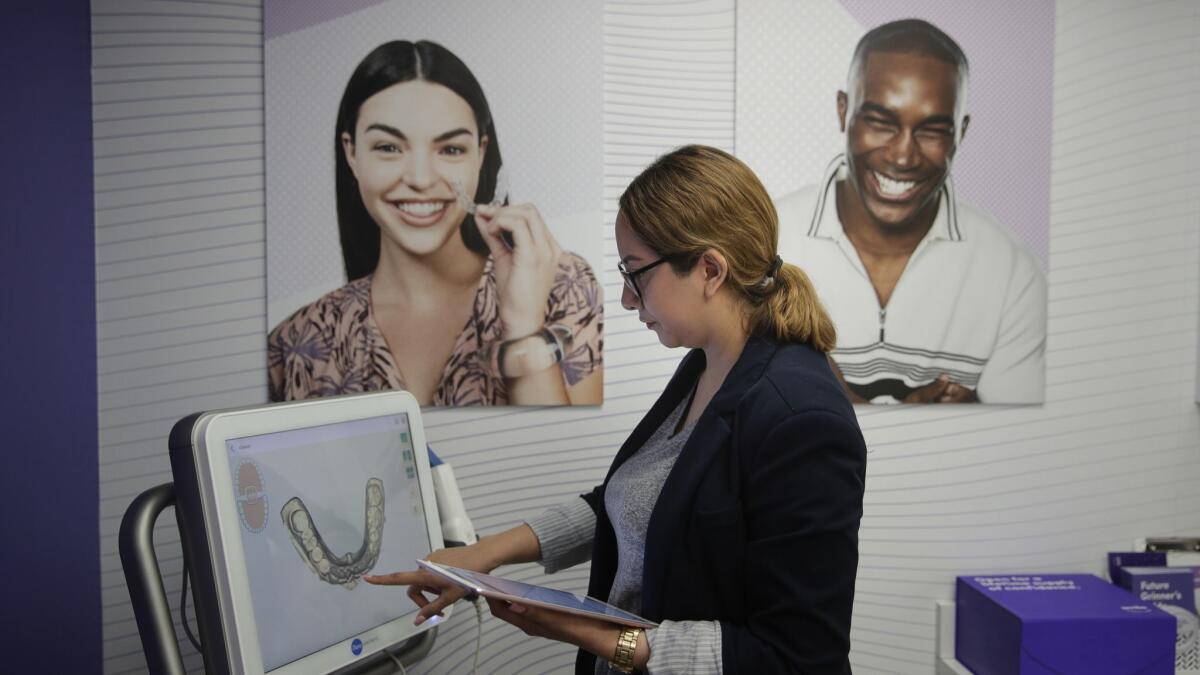SmileDirectClub lawsuit alleges there’s a California dentist conspiracy

- Share via
SmileDirectClub Inc., which sells transparent orthodontic aligners, alleges that dentists who serve on a regulatory board in California conspired to hurt the company’s business to protect their own practices.
In a lawsuit filed Wednesday in federal court, SmileDirect alleges that the Dental Board of California had an investigator conduct “a series of coordinated raids” on the company’s retail locations, known as SmileShops.
The dental board declined to comment on the lawsuit. SmileDirect didn’t immediately respond to a request for comment.
In the lawsuit, SmileDirect claims that the dental board, which is made up largely of dentists, doesn’t have jurisdiction over its shops. But the board has issued “a series of unwarranted information requests … designed to intimidate, harass and unduly burden” the company, the suit says.
And according to the lawsuit, in May 2018 representatives of the board simultaneously entered SmileDirect’s stores in Hollywood, Oakland and San Francisco to question employees and demand files. The lawsuit refers to those actions as raids and says they disrupted business.
Shares of SmileDirect dropped as much as 13% — and ended the day down 5.9% — after a short-seller posted on Twitter, citing the lawsuit. The short-seller, Hindenburg Research, accused SmileDirect of keeping investors in the dark about a problem as the company approached its Sept. 12 initial public offering.
Nashville-based SmileDirect offers an alternative to traditional braces, which are installed in an orthodontist office and have to be regularly adjusted. The company instead offers a set of clear plastic aligners that are swapped out gradually to move the teeth into the desired position. The treatment costs $1,895, which the company promotes as far less expensive than traditional braces.
“The direct-to-consumer model supported by SmileDirect represents a serious competitive threat to their ability to continue to generate such fees through their traditional delivery model in the future,” SmileDirect said in the lawsuit.
The technique also requires far fewer in-person visits by patients. The product has turned SmileDirect into a $3.7-billion market-valuation company. Analysts have projected it will bring in more than $1 billion in sales next year, though the company’s stock price has struggled since the IPO.
More to Read
Inside the business of entertainment
The Wide Shot brings you news, analysis and insights on everything from streaming wars to production — and what it all means for the future.
You may occasionally receive promotional content from the Los Angeles Times.










